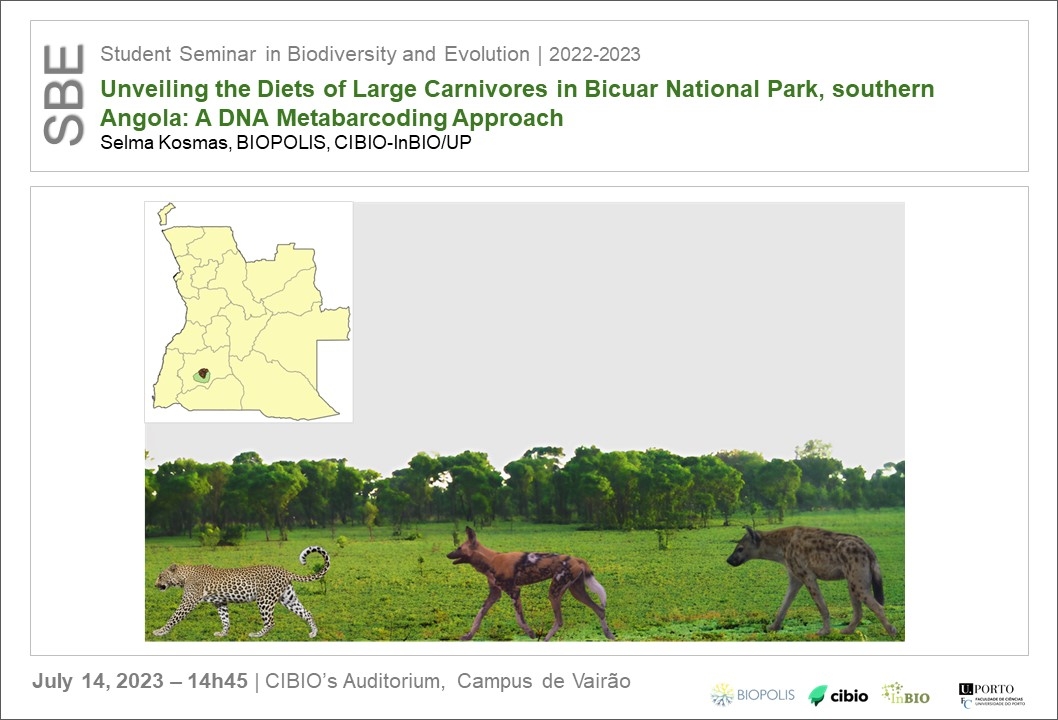Unveiling the Diets of Large Carnivores in Bicuar National Park, southern Angola: A DNA Metabarcoding Approach
Event
STUDENT SEMINAR IN BIODIVERSITY AND EVOLUTION
July 14th, 2023
Selma Kosmas, BIOPOLIS, CIBIO-InBIO/UP | 14h45 | CIBIO’s Auditorium, Campus de Vairão

STUDENT SEMINAR IN BIODIVERSITY AND EVOLUTION
The classical optimal foraging theory (OFT) proposes that animals adjust their foraging behaviours strategically to maximize resource acquisition. This theory has been applied to explain the dietary patterns of large carnivores in African ecosystems, which are characterized by diverse species and high management efforts. In this study, we aimed to quantify the diets of the spotted hyena (Crocuta crocuta), leopard (Panthera pardus), and the African wild dog (Lycaon pictus) in Bicuar National Park, southern Angola. This habitat has experienced an incomplete species assemblage due to a three-decade-long civil war. To analyze prey items, we employed DNA metabarcoding using high-throughput sequencing (HTS). Our results indicate that the three carnivores primarily prey on ungulate species, with the common duiker (Sylvicapra grimmia) being the most frequently consumed prey, accounting for at least 70.1% of the Frequency of Occurrence (FOO) in their diets. The common duiker is the most abundant prey item, as such this finding aligns with the predictions of the OFT. Additionally, the consumption of other prey species, such as bushpigs (Potamochoerus larvatus) and kudus (Tragelaphus strepsiceros), reflected their availability in the environment.
We observed a high degree of dietary overlap at the species level among the carnivores, which may indicate potential competition. While estimated diet frequencies did not significantly differ between female and male leopards, there were variations observed for spotted hyenas. Overall, these findings have significant implications for the development of effective conservation strategies. Moreover, the study enhances our understanding of species interactions within different community structures, thereby contributing to a broader knowledge base.
Selma Kosmas is a student in the BIODIV-Africa Doctoral Programme, University of Porto. She has an interest in biodiversity conservation, with particular focus on mammals. Her PhD thesis is titled: Molecular ecological inferences of large carnivores and their prey in ecosystems of Southern Angola, under the supervision of Raquel Godinho, Pedro Monterroso & Ezequiel Fabiano (University of Namibia).
[Host: Raquel Godinho, Ecogenomics - ECOGEN]
